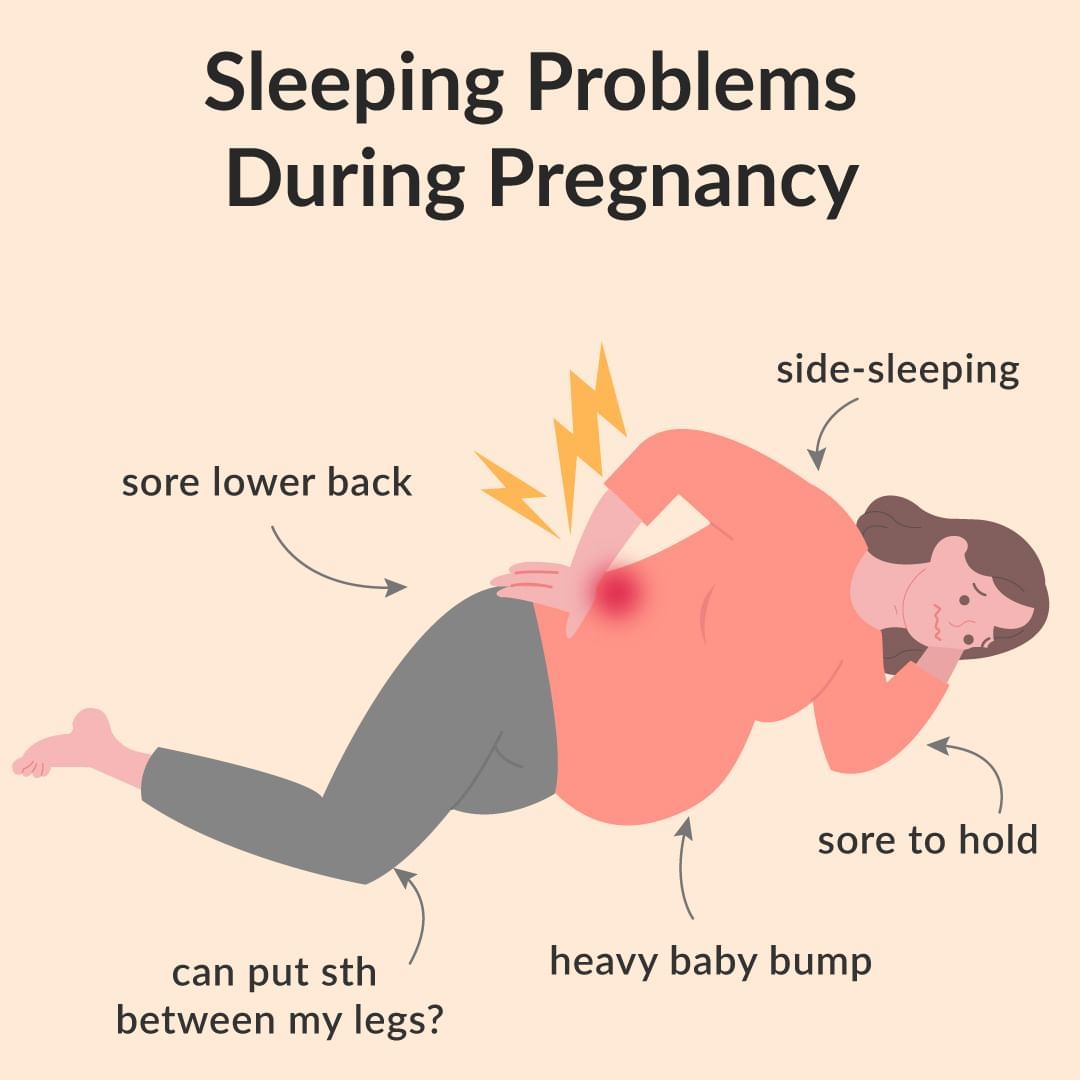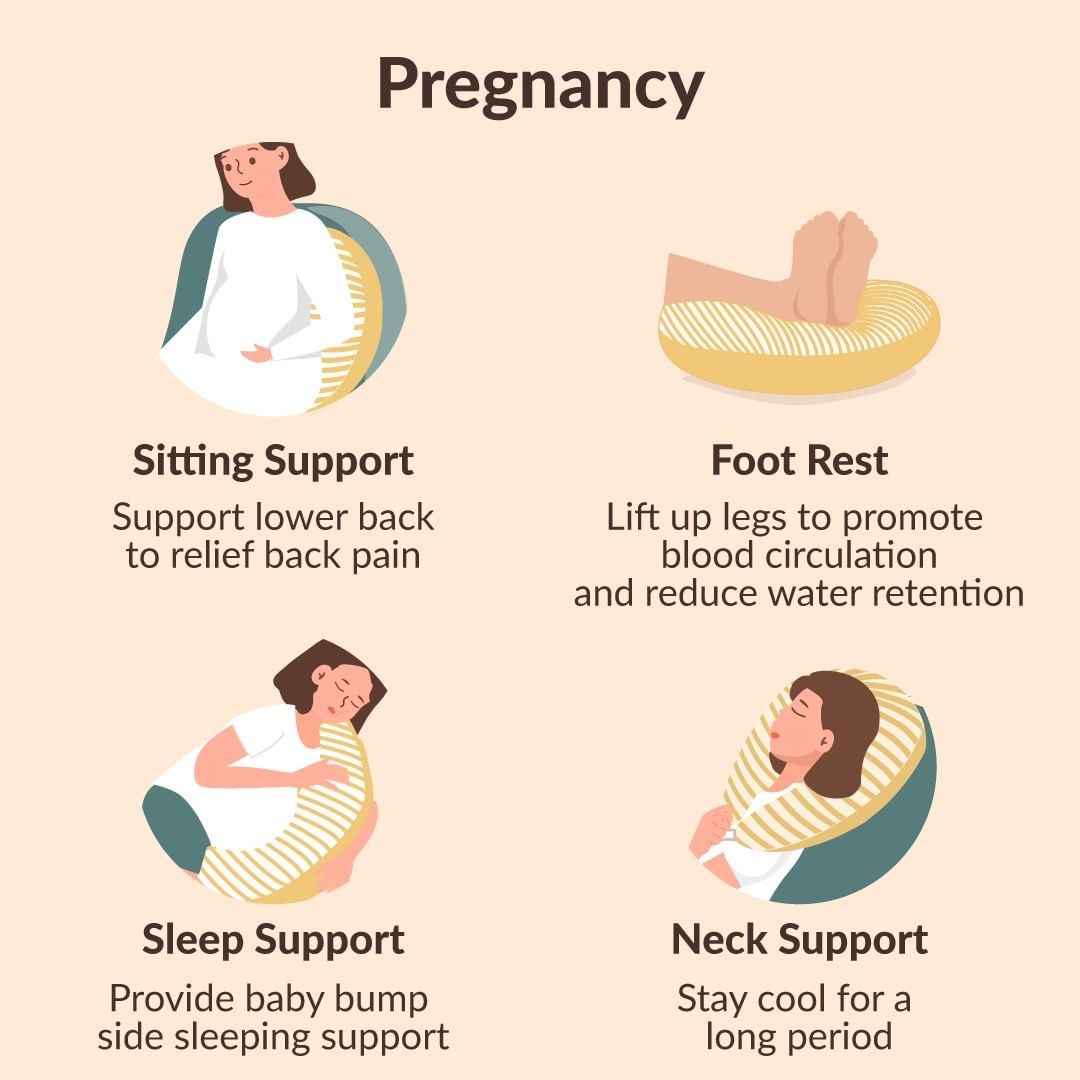2024-01-02 11:15:05

Most pregnant women have to suffer from sleeping problems through their pregnancy, which made the pregnancy journey even more challenging when you undergo a lot of body changes due to hormone changes. Although the sleeping problems might be unavoidable, there’re still ways to help you get good sleep as much as possible. Here are some common sleeping problems that you might encounter, and the corresponding ways to deal with pregnancy sleeping problems, let’s take a look!

Frequent urination
Frequent urination at night, also known as nocturia, is a common issue during pregnancy. It occurs due to several factors, including increased blood flow to the kidneys, hormonal changes, and the growing uterus putting pressure on the bladder. While it is a normal part of pregnancy, there are some strategies to help deal with frequent urination at night:
- Stay hydrated during the day
- Limit caffeine and fluids in the evening
- Empty your bladder before bedtime
- Elevate your legs during the day
Baby kicks
Feeling the baby kicks at night is a normal and exciting part of pregnancy. While it can be a little disruptive to your sleep, there are some strategies you can try to cope with baby kicks at night:
- Adjust your sleep position
- Use Moon pillows for support
- Practice relaxation techniques
- Stay active during the day
- Limit caffeine and fluid intake before bedtime
Room temperature can be a problem
Pregnant women may feel more sensitive to temperature fluctuations, so it’s important to create a sleep environment that promotes comfort and relaxation. Here are some tips to deal with room temperature at night during pregnancy:
- Optimal room temperature
- Use a fan or air conditioning
- Layer bedding
- Choose breathable fabrics
- Consider a pregnancy pillow.
Legs cramp
These cramps can occur in the calf muscles and cause sudden, painful contractions. Here are some strategies to deal with leg cramps at night during pregnancy:
- Stretch before bedtime
- Stay hydrated
- Maintain a balanced diet
- Elevate your legs
- Use a pregnancy pillow
Insomnia
It’s essential to prioritize restful sleep during pregnancy, as it is crucial for both your well-being and the health of your growing baby. Here are some tips to help manage insomnia at night during pregnancy:
- Establish a bedtime routine
- Create a comfortable sleep environment
- Limit screen time before bed
- Pillows for support
- Keep a consistent sleep schedule

Invest in a good pregnancy pillow!
A good-quality pregnancy pillow not only can give good support to your back and your pelvis, but you can also sleep easier and more comfortably by putting it between your legs throughout the night. Mamaway’s non-toxic moon pillow is made with premium material, which won’t collapse like other brands, and the temperature-regulating fabric can adjust the temperature, so you don’t have to worry about waking up sweating or freezing! The pillow can also be used as a regular pillow after giving birt, and a nursing pillow.

Remember that pregnancy can bring various physical and emotional changes that might affect your sleep. Be patient with yourself and allow time for adjustments. If you’re struggling with insomnia and finding it challenging to cope, seek support from your healthcare provider, who can provide further guidance and assistance tailored to your specific needs.

Leave a Reply